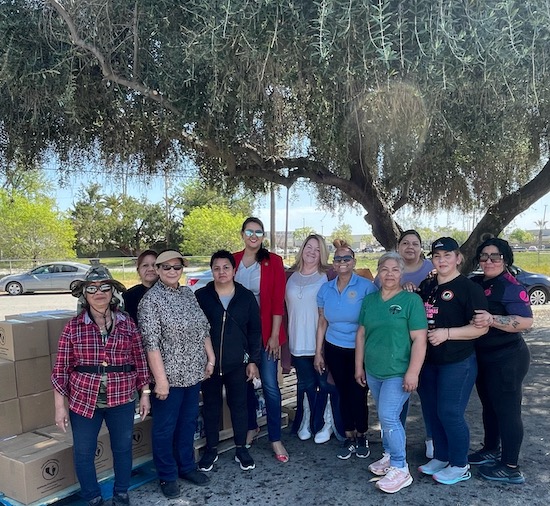March Update from Dr. Bains' Office
Dear Neighbors,
Activity is ramping up at the Capitol. A key piece of my legislative package to help older and aging adults passed out of committee with bipartisan and unanimous support in mid-March.
Assembly Bill 2451 (AB 2451) will get experts and law enforcement officers together to create guidelines addressing wandering associated with Alzheimer’s disease, autism, and dementia.
More than 60% of the people diagnosed with Alzheimer’s disease will wander at some point. Nearly 50% of children with autism will engage in wandering behavior. These instances of wandering increase the chances of individuals needing assistance from or coming into contact with local law enforcement.
More updates will come as this bill works its way through the legislature.
National Ag Week
We celebrated National Ag Week from March 17 - 23, and this year, I had the honor of recognizing California Dairies, Inc. for donating a commercial refrigeration unit to the food pantry at the First Assembly Church in Delano. Johnston Farms also donated a truckload of fresh citrus that was given out a food distribution on the morning of Friday, March 22.
The Central Valley feeds the world; that is more than just a slogan. Our agricultural partners’ consistent generosity makes a significant difference in fighting food insecurity in some of our most disadvantaged and underserved communities.
You can see a highlight video of the event here.


Doctor's Note
It’s always important to address uncomfortable or stigmatized health issues. No one wants to think about or talk about sexually transmitted diseases, but for this month’s Doctor’s Note, we’re going to do just that: Let’s discuss human papillomavirus (HPV) and Pap smear tests.
HPV is the cause of nearly all cervical cancers. Getting vaccinated against HPV infection is your best protection from cervical cancer. Even with the vaccine, women ages 21 to 29 need to get a Pap smear test every three years. HPV testing alone should also be considered for women between 25 and 29, but Pap smear tests are more effective. Women between the ages of 30 and 65 should get their Pap smear every three or every five years if they also get an HPV DNA test. Women over the age of 65 can stop testing after three normal Pap tests in a row or two HPV DNA and Pap tests without abnormal results.
These are recommendations, but as always, talk with your physician about the right options for you. Regular testing is vital to maintaining your health.
Sincerely,

Dr. Jasmeet Bains
Assemblymember, 35th District